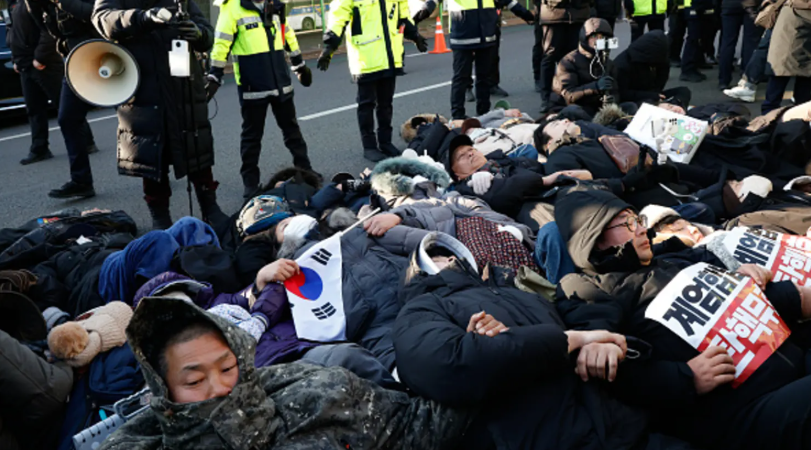SEOUL, South Korea — South Korean authorities tried and failed Friday to carry out an unprecedented arrest warrant for President Yoon Suk Yeol over his botched attempt to declare martial law in a dramatic standoff at the presidential residence where Yoon has been staying since he was impeached last month.
Investigators and police officers began leaving Yoon’s official residence in central Seoul around 1:30 p.m. local time (11:30 p.m. Thursday ET), more than five hours after they first passed through the steel gates.
They said they had suspended the execution of the arrest warrant for the day “because we have concluded that it is impossible to execute it today,” citing safety concerns as they were blocked by Yoon’s presidential security detail.
“It is to our extreme regret that the suspect did not respond to the legal proceedings,” a joint team of investigators said in a statement.
The warrant, which Yoon’s lawyers say is illegal, does not expire until Monday and officials could try to execute it again before then.
They are seeking to detain Yoon for questioning on possible charges of insurrection, one of the few crimes for which South Korean presidents do not have immunity. Officials would then have to apply for a separate court warrant in order to formally indict and continue to hold him.
Thousands of police officers arrived at the compound on Friday, a month to the day after Yoon’s short-lived declaration of martial law.
In addition to Yoon’s security detail, they faced a growing crowd of Yoon’s conservative supporters outside the residence who were trying to form a “human shield” to protect him from arrest, some of whom waved American flags in a show of support for the U.S.-South Korea alliance.
Officials said Yoon’s arrest warrant had been served to the presidential security chief, Park Jong-joon, at 10:11 a.m. Friday.
The Presidential Security Service, which has also blocked investigators from searching Yoon’s office and residence in recent weeks, told NBC News that it was required by law to protect the president, including from anyone entering the premises to execute warrants.
South Korea’s Joint Investigation Headquarters said Friday afternoon that Park had been summoned “over obstruction of special official duties.”
The main opposition Democratic Party criticized the actions of the presidential security detail and said Choi Sang-mok, South Korea’s second acting president since Yoon’s impeachment on Dec. 14, should take “decisive action” to ensure Yoon’s arrest.
Though Yoon, 64, is not the first South Korean president to be impeached, he would be the East Asian democracy’s first sitting president to be arrested. He has been suspended from presidential duties since his impeachment pending a Constitutional Court trial to determine whether it should be upheld.
Yoon’s lawyers said Friday that he is “ready to abide by the law as long as it is the rightful due process of law.”
They have challenged the warrant issued Tuesday to arrest Yoon and search the presidential office and residence, saying the Corruption Investigation Office for High-ranking Officials, which is leading the joint investigation team, does not have comprehensive command authority over the police.


